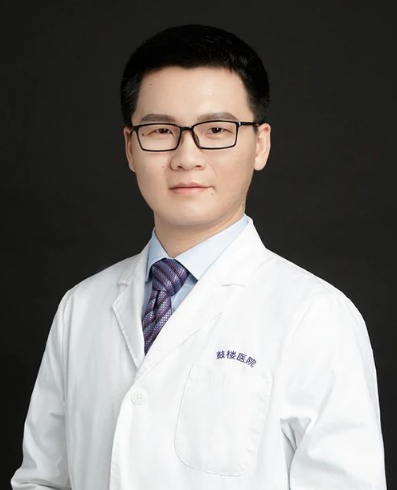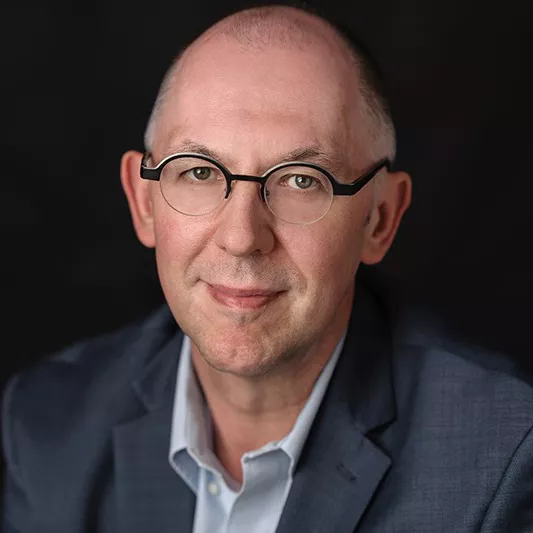Editor's note: In recent years, on the basis of androgen deprivation therapy (ADT), new endocrine therapies such as AR pathway inhibitors have become standard treatments for patients with metastatic hormone-sensitive prostate cancer (mHSPC), and more intensive treatments are being explored clinically, strategies include combination chemotherapy, radiotherapy, and even immune and targeted therapies. At the 2024 EAU Congress, Dr. Bertrand Tombal from Université Catholique de Louvain reported the latest data on European patients from the ARASENS study. " Oncology Frontier" specially invited Dr. Junlong Zhuang from Drum Tower Hospital to remotely connect with Dr. Bertrand Tombal to discuss more hot issues of intensive treatment and safety management of mHSPC.
Dr. Junlong Zhuang
Drum Tower hospital

Dr. Bertrand Tombal
Université Catholique de Louvain (UCL)
Oncology Frontier: Good morning, Dr. Tombal. The ARASENS study has demonstrated that the combination of ADT + docetaxel + darolutamide can improve overall survival in patients with mHSPC. How do you think patients should be screened for this treatment?
Dr. Tombal: It’s important to reflect on the genesis of the trial. Back in 2014, we had established ADT plus docetaxel as the standard of care for patients with aggressive disease, supported by three trials. Subsequently, abiraterone and enzalutamide emerged, prompting debates over the choice between docetaxel and these newer options. In 2015, we sought to answer whether adding an AR pathway inhibitor to ADT plus docetaxel, for patients with aggressive disease, would be beneficial.
The challenge with apalutamide and enzalutamide was their significant drug-drug interactions, making them difficult to combine with docetaxel. Hence, we chose darolutamide. Our findings revealed that if a patient requires chemotherapy for aggressive disease, including multiple bone metastases, it is advantageous to administer an AR pathway inhibitor concurrently. Choosing darolutamide does not increase the toxicity associated with docetaxel, which was a critical factor for us. The ability to administer it with the same toxicity as before and then continue with darolutamide until progression is the main takeaway. Simply put, docetaxel alone is not adequate; an ER pathway inhibitor must be included in the regimen.
Oncology Frontier: Dr. Zhuang, if the efficacy of mHSPC patients fails to reach the target during combined ADT treatment, will you consider intensive treatment such as surgery or radiotherapy?
Dr. Zhuang: Yes, absolutely. Retrospective studies have proven that systematic therapy plus local therapies like surgery or radiotherapy are more beneficial for overall survival, especially for low-volume metastatic hormone-sensitive cancers. In the real world, for low-volume or local metastatic hormone-sensitive breast cancer, we recommend local therapy for patients.
Oncology Frontier: Dr. Tombal, intensive treatment has been a hot topic in the field of mHSPC in recent years. What do you think of new intensive treatment strategies such as “quadruple therapy” (NHT + ADT + chemotherapy + radiotherapy) and NHT + immunotherapy?
Dr. Tombal: You need to have a bit of history in the field, like I do, having been involved for about 25 to 30 years. People tend to forget that there hasn’t been a single trial that showed androgen deprivation therapy alone increases overall survival without local treatment. Thus, it’s not surprising that adding an NHT increases overall survival. In many countries, we had recommended maximal androgen blockade, but the drugs previously used were not very effective. Now, we have the EMBARK trial showing that an AR pathway inhibitor alone is more effective than ADT. When people decide to administer ADT alone, they need to understand that they are using a drug that does not increase overall survival. If they want their patient to live longer, they must add something more.
At this moment, the simplest and most efficient approach is to add an AR inhibitor, such as abiraterone, apalutamide, darolutamide, or enzalutamide. In the future, we will also discuss adding immunotherapy in selected cases, like patients with MSI mutation POP inhibitor and those with BRCA mutation. It’s important to acknowledge that the era of treating metastatic patients with ADT alone is over. In 20 years, we might even question the need for ADT alone. The last decade has importantly shown that the necessary drug for a patient with metastasis is an AR inhibitor, and we should start building from there.
Oncology Frontier: Dr. Zhuang, how do you think complications from treatment should be managed to improve survival and quality of life for prostate cancer patients?
Dr. Zhuang: First, we need to compare to the data provided by Professor Tombal in the EAU and the data we received in January for Chinese patients. The analysis of results from the ARASENS study shows that darolutamide plus ADT and docetaxel significantly prolonged overall survival in both Chinese and European mHSPC patients, with a good safety profile for darolutamide demonstrated in both groups. We also observed that adverse events were similar across groups, many of which are known to be associated with treatments such as alopecia, neutropenia, fatigue, and anemia. Most adverse event rates were similar between the different treatment groups and consistent with the overall population studied in the RSS study. Similar to real-world experience, the potential interactions between darolutamide and docetaxel or commonly used drugs are very low. This suggests that our approach to combining different treatments, like docetaxel and ADT, is beneficial for patients.
Oncology Frontier: For this year’s EAU 24 conference, do you have any other interesting topics or research outcomes you would like to share?
Dr. Tombal: Honestly, if I have to recommend something for our listeners to explore post-EAU, it would be The Lancet Commission on Prostate Cancer, arranged by Nick James. It’s a substantial piece of work that projects how prostate cancer treatment will evolve over the next decade. I appreciate this initiative for its global perspective, recognizing the emerging prevalence of prostate cancer in Asia, including China, Japan, and Korea. This represents a significant portion of the scientific literature presented at EAU, and I encourage everyone to read it.
Dr. Zhuang: Unfortunately, I couldn’t attend the conference in Paris due to a time conflict, but I’ve been closely following the discussions on intensive treatment in the field of mHSPC. While triple or quadruple therapy is now a focus, the key consideration is not just the benefits but also how patients manage the side effects. Adverse reactions are, in my view, the most critical factor for doctors to consider when deciding whether intensive treatment is appropriate for their patients. This is the area I’m particularly focused on.


